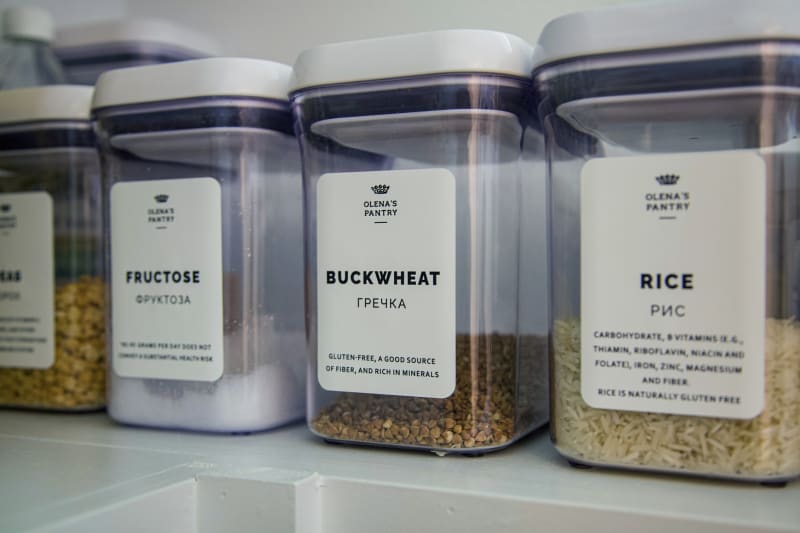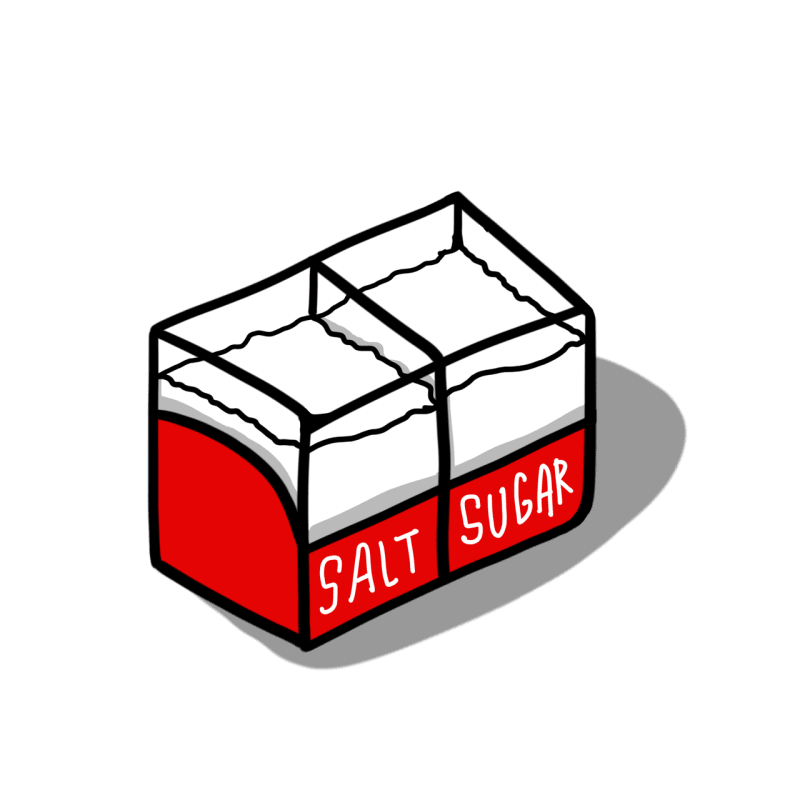Welcome! In this series, I try to oversimplify CS concepts in an attempt to help us all better understand them. Thanks for your time, enjoy!
What are variables?
-
Variables are names we assign to storage slots in our computers memory.
- In the picture above, imagine each container is a slot of memory in our computer.
- The food itself is data sitting in a slot of memory.
- The labels are variable names we give to that slot of memory.
How do we use variables?
- We use variables to retrieve data sitting in named storage slots
num1 = 1900 // Save 1900 in storage and name the slot num1
num2 = 121 // Save 121 in storage and name the slot num2
sum(num1 + num2) // Add data in storage slots num1 & num2
What are the benefits of using variables?
- Use simple names to evaluate complex expressions
- Rename any storage slot that's holding data
- Replace the data in any storage slot
- Use a single name for similar values in a list of data
Descriptive Variable Naming (... and why it's important!)
- In my second attempt to oversimplify using a food analogy:
- Sugar and Salt look the same but they taste completely different
- It is important that we put them in properly labeled containers or we might get weird tasting food.
- It is also important that we put data in properly named storage slots or we will get weird expression results / errors.
- Inaccurate variable names will confuse other developers and your future self, which could lead to unexpected results & bugs
As mundane as variables seem, using them properly is crucial to being a good developer.
BONUS: Variable Typing
- Some programming languages require us to explicitly define what data type the variables storage slot will hold.
int num1 = 1900 // Variable that only stores integers
str str1 = "A string" // Variable that only stores strings
- Typing helps productivity by showing us errors when we use a variable incorrectly (Ex: Adding a boolean variable and an integer variable).





Top comments (0)